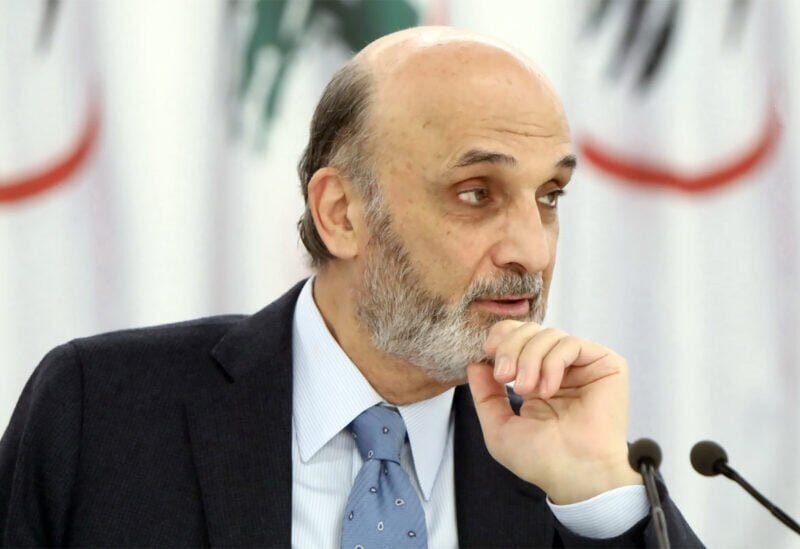
Samir Geagea, leader of the Lebanese Forces party
Samir Geagea, leader of the Lebanese Forces party, urged on Friday all bank depositors to speed up the submission of requests for provisional seizure of the mandatory currency reserves of the Central Bank to prevent the ruling class from “swallowing” the citizens’ last pennies.
Geagea said “the ruling class has started suggesting that the Lebanese would not get any medicine or medical supplies unless the mandatory reserves are disbursed, which was also suggested regarding the electricity issue when it said: you either go into darkness or we use the reserves.”
“This ruling class cannot be contended with being an oppressive, corrupt and failed authority, but also insists on being impudent, immoral and a robber to the maximum, because it is a crime to keep the citizens afraid of the worst-case scenario.”
“Medicine and medical supplies are the state’s responsibility, not that of the poor citizen who had deposited the money he worked hard to gain with the banks so he may be able to spend it when he’s old and educate his children.”
Lebanon’s Association of Depositors on Thursday warned the Central Bank (BDL) against dipping into the country’s mandatory currency reserves after the BDL said it was unable to keep subsidizing medicine without using such reserves.
Earlier on Thursday, the Central Bank said a system for importing subsidized medical goods could not be sustained without using its mandatory reserves and asked the relevant authorities to find a solution to the problem.
The country is in the throes of a severe financial meltdown and has been subsidizing medicine, fuel, wheat, and other basic goods since last year.
In a statement issued after caretaker health minister Hamad Hasan said he had visited the bank asking for the release of funds for essential medicines to no avail, the BDL said it would not dip into its mandatory reserves to cover the $1.3 billion cost of the subsidized medical supplies.
The statement said “this total cost that is required from the Central Bank as a result of a policy to subsidize these medical items cannot be supplied without touching mandatory reserves and this is what the board of the Central Bank refuses.”
Lebanon’s hard currency reserves have fallen alarmingly from more than $30 billion before the financial crisis hit the country in late 2019 to just over $15 million in March.